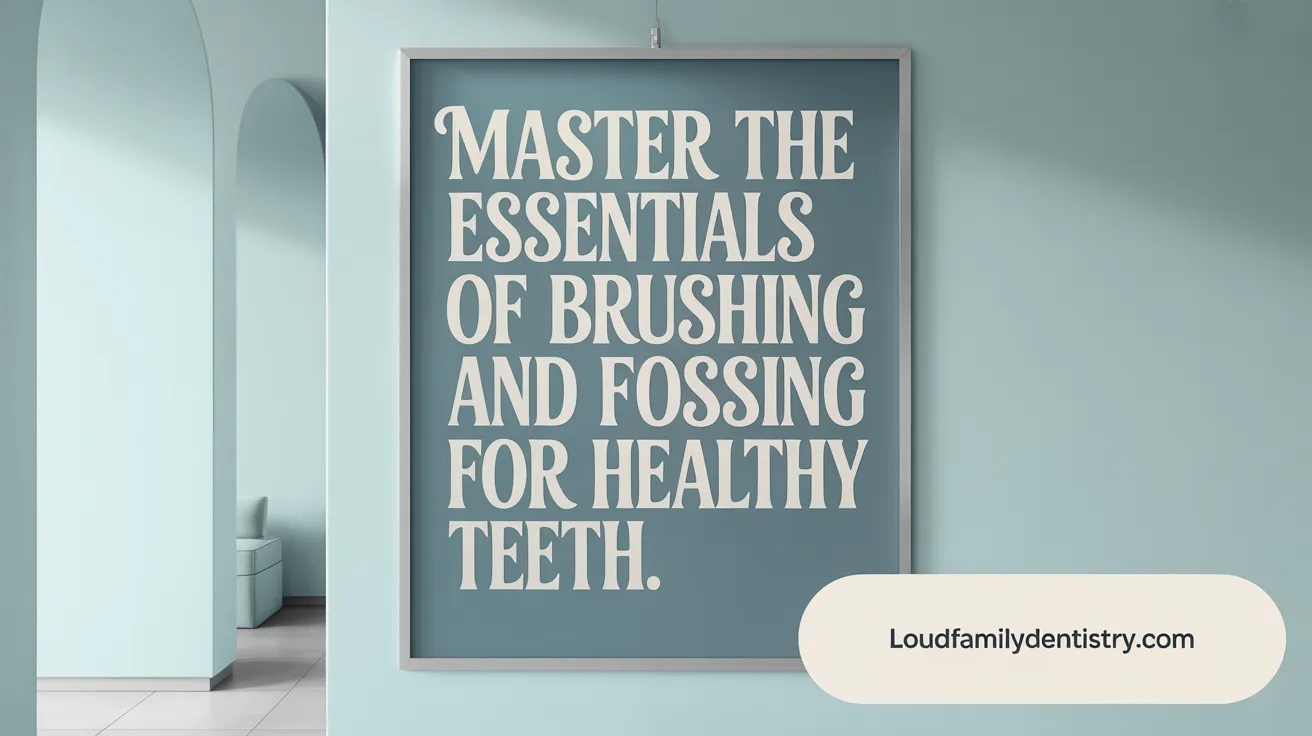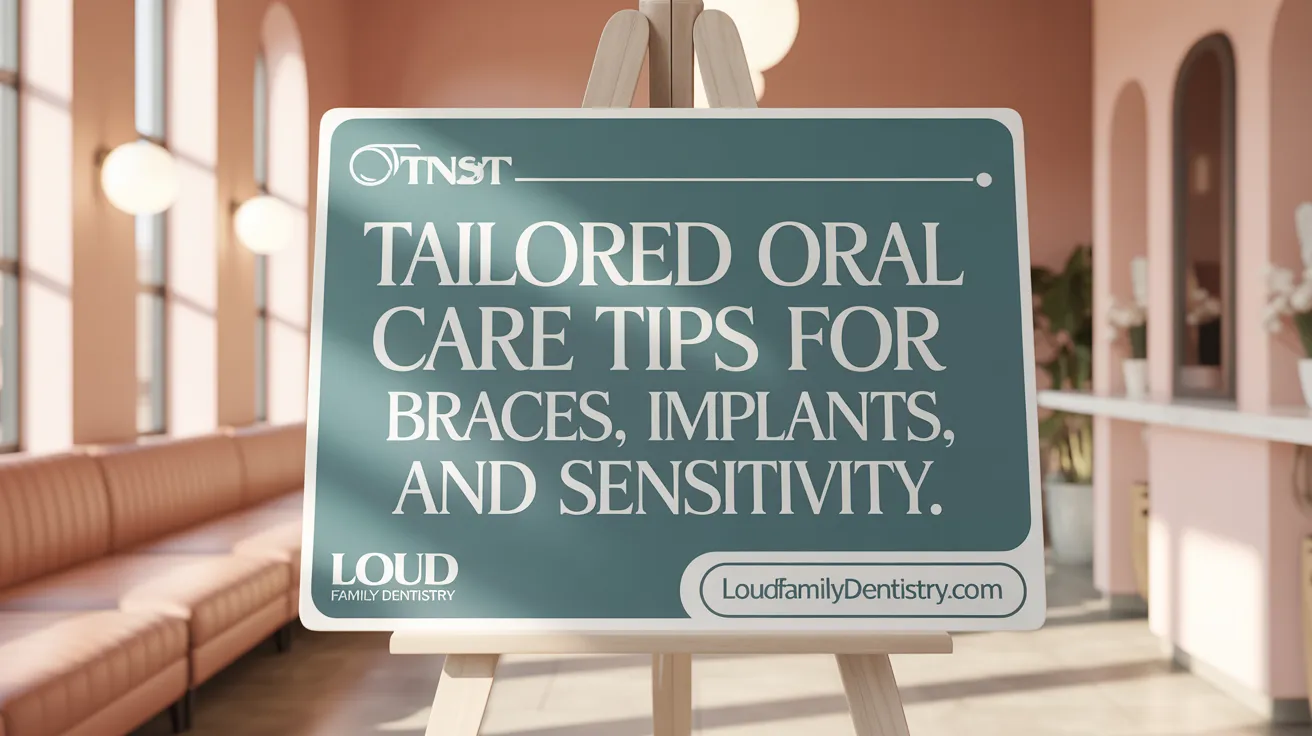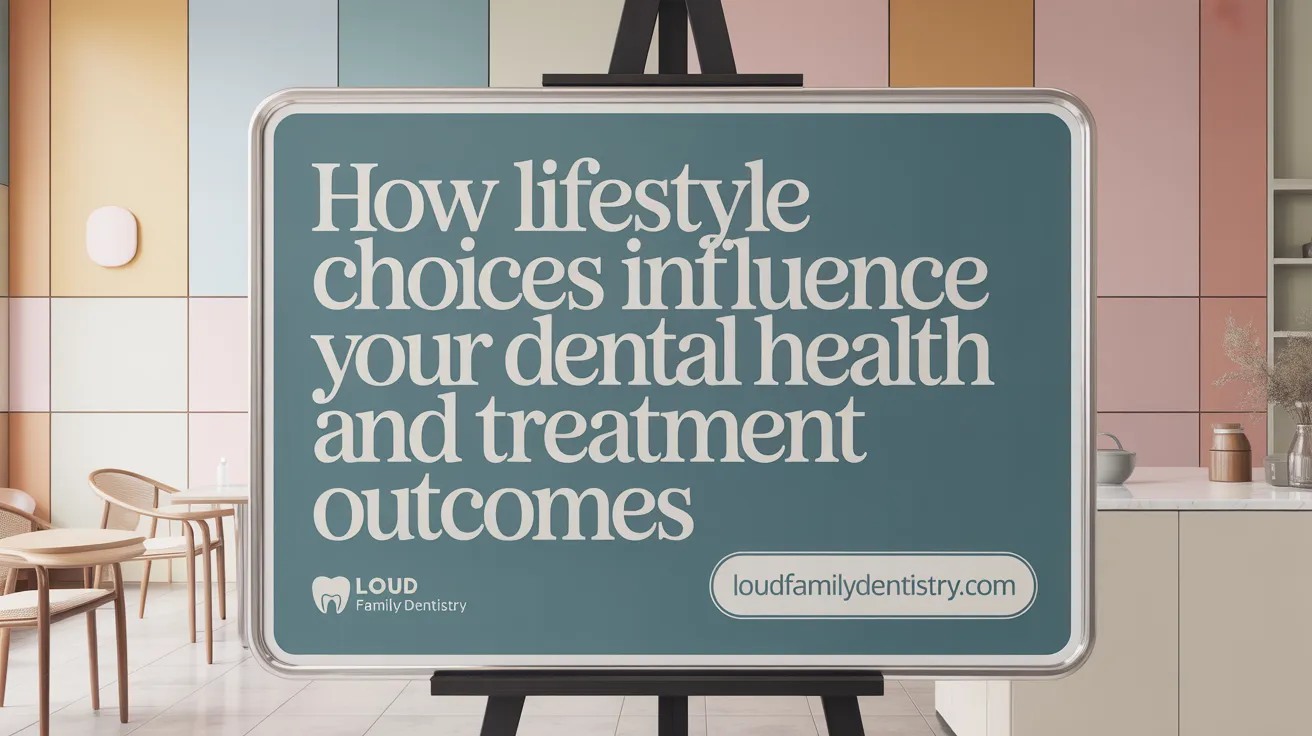Why Your Daily Routine Matters to Your Dental Health
Consistent and effective oral hygiene practices at home form the foundation of good dental health and are critical to complementing professional treatments received at dental clinics. By understanding and implementing the best daily routines, patients can enhance the benefits of clinical care, prevent oral diseases, and reduce the need for invasive procedures. This article explores essential daily dental hygiene habits, how they integrate with clinic treatments, and the overall impact on oral and systemic health.
Essentials of Daily Oral Hygiene: Brushing and Flossing

What Are the Best Practices for Brushing Teeth Daily?
Brushing your teeth properly twice a day is fundamental for maintaining good oral health. Use a soft-bristled toothbrush with fluoride toothpaste to strengthen enamel and prevent decay. Hold the brush at a 45-degree angle toward your gumline to effectively remove plaque and bacteria. Employ gentle circular motions, covering all surfaces of each tooth, including fronts, backs, and chewing surfaces, for about two minutes. Don't forget to brush your tongue daily, which helps remove bacteria that cause bad breath.
Why Is Daily Flossing Important and How Should It Be Done?
Flossing once daily is essential because toothbrushes miss the tight spaces between teeth where plaque accumulates. Use approximately 18 inches of floss, wrapping it around the middle fingers for a good grip. Gently slide the floss between your teeth, curving it into a 'C' shape around each tooth. Move the floss up and down along the tooth surface and beneath the gumline to clean effectively without causing damage. This routine helps prevent cavities, gum inflammation, and bad breath.
Additional Tips on Tools and Technique
Opt for a soft-bristled brush to avoid gum irritation and enamel erosion. Replace your toothbrush or brush head every three to four months, or sooner if bristles appear worn. If traditional flossing is difficult, alternatives like floss holders, water flossers, or interdental brushes can be useful. Incorporating tongue scraping along with brushing can further reduce oral bacteria and enhance breath freshness.
Proper brushing combined with effective flossing forms the cornerstone of daily oral hygiene, supporting healthier teeth and gums and contributing to overall well-being.
Role of Mouthwash and Tongue Cleaning in Enhancing Oral Hygiene

How does mouthwash contribute to oral hygiene?
Using an antibacterial mouthwash daily, especially alcohol-free formulas, plays a significant role in reducing plaque buildup and harmful oral bacteria. This adjunct to brushing and flossing is effective in reaching areas that toothbrushes and floss may miss, thereby lowering the risk of gingivitis and reducing bad breath. Mouthwash also helps maintain a balanced oral microbiome, supporting healthier gums and fresher breath.
What is the significance of cleaning the tongue daily?
Daily tongue brushing or tongue scraping is essential for removing bacteria that commonly accumulate on the tongue's surface. These bacteria can cause bad breath and contribute to the formation of plaque on teeth. Tongue cleaning helps eliminate this bacterial load, promoting fresher breath and overall oral cleanliness.
Together, mouthwash use and tongue cleaning form important parts of a comprehensive daily oral hygiene routine, enhancing the effectiveness of brushing and flossing to achieve a cleaner mouth and better oral health.
Integrating Clinic Treatments with Home Care for Optimal Results
Why are regular dental visits essential alongside daily hygiene?
Regular dental visits, typically every six months, are fundamental for sustaining oral health. These appointments provide professional cleanings that remove tartar—hardened plaque that cannot be eliminated through routine home brushing and flossing. Additionally, dental professionals conduct thorough exams to detect early signs of cavities, gum disease, and other oral health issues. Personalized advice based on these assessments helps tailor an individual's hygiene routine, ensuring it addresses specific risks and improves effectiveness. For more details, see importance of regular dental visits.
How do good home care routines reduce the need for restorative dental procedures?
Effective daily oral hygiene practices, including twice-daily brushing with fluoride toothpaste and daily flossing, maintain the health of teeth and gums. This consistent care prevents the build-up of plaque and bacteria, which are primary causes of cavities and gum disease. By controlling these issues early and maintaining gum health, patients lower their chances of requiring more costly and invasive restorative procedures like fillings, root canals, or periodontal treatments. Good home care thus acts as a preventive measure that supports long-term oral health and reduces dental treatment costs. For comprehensive guidance, refer to oral hygiene best practices.
Combining Clinical Care and Home Routines for Prevention
The synergy between regular clinic visits and diligent home care forms the cornerstone of effective oral health maintenance. Dental clinics offer professional interventions such as tartar removal, fluoride treatments, and risk assessments that complement daily practices. Patients equipped with personalized hygiene plans—developed after clinical evaluations—can target their home care to their unique needs, improving outcomes. Such coordinated care not only helps prevent common oral problems like cavities, gum disease, and bad breath but also contributes to overall health by reducing risks linked to poor oral hygiene, including cardiovascular and systemic diseases. For insights into comprehensive dental care and prevention, see Preventative Dental Care and Oral Hygiene Daily Routine and oral health and overall health connections.
Special Considerations: Oral Hygiene for Patients with Braces, Implants, and Sensitivities

What special oral hygiene practices benefit patients with braces?
Maintaining clean teeth and gums with braces requires adjusted routines. Patients should brush after every meal to remove food particles trapped by brackets and wires. Using interdental brushes helps clean hard-to-reach spaces around orthodontic appliances carefully, avoiding damage to brackets or wires. Flossing should be done daily using floss threaders or specialized orthodontic floss to slide beneath wires and clean between teeth effectively.
How should patients care for dental implants?
Dental implants need careful care to prevent infection or peri-implantitis. Patients should gently brush and floss around the implant area, using floss designed for implants or interdental brushes. Regular dental checkups are vital, allowing early detection and management of any complications to maintain implant health.
Managing sensitivity through appropriate products
Individuals experiencing tooth sensitivity benefit from using toothpaste formulated for sensitive teeth containing ingredients like potassium nitrate or stannous fluoride. Avoiding overly abrasive brushing tools and techniques also helps reduce irritation. Consulting a dentist can provide personalized recommendations, ensuring comfort while maintaining effective cleaning.
By tailoring oral hygiene practices according to these special needs, patients with braces, implants, or sensitivity can protect their teeth and gums and support long-term oral health.
Lifestyle Choices and Their Impact on Oral Health and Clinic Treatment Success

How do lifestyle factors influence oral health and treatment outcomes?
Tobacco use is a major risk factor for serious oral health problems, including gum disease and oral cancer. Completely avoiding tobacco products can significantly reduce these risks, supporting better treatment results in dental clinics. Additionally, dietary habits influence oral health greatly. Consuming fewer sugary and acidic foods helps prevent enamel erosion and cavities, preserving the integrity of teeth and complementing professional care. For more information, see oral health and lifestyle factors and diet and oral hygiene.
Why is personalized product recommendation important?
Not all oral care products suit every individual equally. Dentists provide personalized advice by recommending products that match a patient's specific needs, such as fluoride toothpaste strengths or antibacterial mouthwash suitable for dry mouth. Using products with the American Dental Association (ADA) Seal of Acceptance ensures proven safety and effectiveness, further improving treatment outcomes and helping maintain long-term oral health. Learn more about ADA Seal of Acceptance products and consulting your dentist for product recommendations.
Lifestyle choices play a crucial role in oral hygiene and clinical treatment success. Avoiding tobacco helps prevent harmful diseases; a balanced, low-sugar diet supports enamel durability, and selecting ADA-approved products guided by dental professionals maximizes oral health benefits. For comprehensive guidance on proper oral hygiene techniques and preventative dental care visit these resources.
The Preventative Power of a Consistent Oral Hygiene Routine

How does good oral hygiene protect overall health?
Maintaining proper oral hygiene techniques helps reduce the buildup of harmful bacteria in the mouth, preventing not only dental problems but also lowering risks for systemic diseases. Poor oral health has been linked to conditions such as cardiovascular disease, stroke, pneumonia, complications during pregnancy, and difficulties managing diabetes. By controlling plaque and inflammation through brushing teeth twice a day, daily flossing instructions, and professional dental care, individuals can minimize the spread of oral bacteria and associated systemic effects.
Why is prevention more cost-effective than restorative dental care?
Engaging in consistent oral hygiene habits, including brushing twice daily with fluoride toothpaste, flossing once daily, and regular dental checkups, can effectively prevent tooth decay and gum disease. Such prevention avoids the need for costly, often invasive restorative procedures like fillings, root canals, or tooth extractions. This approach not only saves money but also reduces the physical discomfort and time commitment linked with more advanced dental treatments.
Key elements in maintaining long-term oral health
- Brushing: Twice daily, using a soft-bristled toothbrush at a 45-degree angle with fluoride toothpaste for about two minutes.
- Flossing: Once daily to clean between teeth where brushes cannot reach (daily flossing instructions, how to floss properly).
- Tongue cleaning: Helps reduce bacteria causing bad breath (brushing the tongue benefits, tongue cleaning benefits.
- Mouthwash: Use an ADA-approved, alcohol-free antibacterial mouthwash to further reduce plaque and bacteria.
- Regular dental visits: Typically every six months for exams and professional cleanings.
- Lifestyle choices: Avoid tobacco products (risks of smoking for gums and oral cancer and limit sugar intake to protect gums and teeth.
Consistently following these steps supports healthy teeth and gums while contributing to overall well-being. Preventive oral care is a cornerstone of both dental and systemic health, exemplifying the important link between mouth hygiene and general quality of life.
The Critical Role of Dental Hygienists and Clinics in Supporting Daily Oral Care
What services do dental hygienists provide to complement patient home care?
Dental hygienists play a vital role in maintaining and improving oral health beyond what patients can manage at home. They perform professional plaque and tartar removal through thorough cleanings that target hard-to-reach areas. These procedures reduce the risk of cavities and gum disease significantly. Hygienists also provide fluoride treatments to strengthen enamel, along with oral health screenings including periodontal assessments and oral cancer checks. A key part of their service involves educating patients on personalized oral hygiene techniques, including proper brushing , flossing, and care for dental appliances like braces and implants. This tailored advice helps patients optimize their home care routines for better outcomes.
How do dental hygiene clinics assist in promoting good daily oral hygiene?
Dental hygiene clinics serve as essential community resources offering accessible, quality care under professional supervision. They conduct comprehensive exams, including risk assessments and digital imaging, allowing early detection of dental problems. Clinics provide preventive services such as tartar removal, fluoride application, and periodontal therapy. Beyond treatment, they emphasize education by counseling patients on nutrition, tobacco cessation, and improved oral hygiene habits. Many clinics integrate student training programs, which allow future hygienists to gain clinical experience while serving diverse populations. This combination of care and education helps reinforce daily oral care practices.
How do clinic care and patient home routines collaborate?
The partnership between clinic care and patient home oral hygiene is crucial for long-term oral health. Hygienists assess patients' habits and oral condition during appointments, then offer customized guidance to enhance home practices. This may include recommending specific toothbrushes, interdental cleaners, or mouthwash types suited to individual needs. Clinics encourage patients to maintain routines like brushing twice daily at a 45-degree angle with fluoride toothpaste, flossing daily, and cleaning the tongue to remove bacteria. Regular follow-ups ensure that home care adjustments are effective and timely interventions are made if problems arise. This collaborative approach supports prevention, reduces the need for invasive treatments, and fosters patient empowerment in oral health maintenance.
Building a Partnership for Lasting Oral Health
A well-rounded daily dental hygiene routine is fundamental for enhancing the effectiveness of clinical treatments and maintaining oral health over a lifetime. Brushing properly, flossing daily, using mouthwash, and caring for specialized dental needs—combined with regular dental visits and professional cleanings—create a proactive defense against common oral diseases. Additionally, lifestyle choices profoundly influence oral and overall health, underscoring the value of personalized care guided by dental professionals. Dental hygienists and clinics play a pivotal role in educating patients and delivering preventive care, fostering a partnership that empowers individuals to sustain healthy smiles and reduce the need for complex dental interventions. Embracing these daily habits supports not only oral wellness but also contributes to broader systemic health benefits, making consistent oral care a vital component of comprehensive health management.
